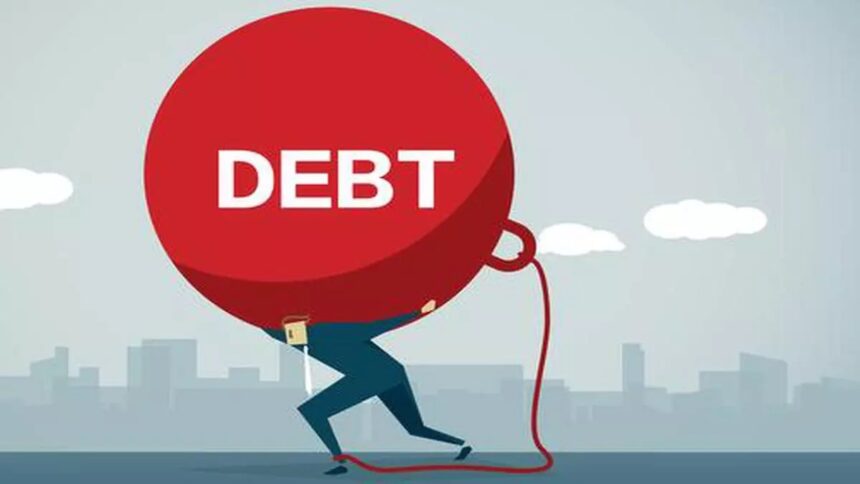Nigeria’s public debt surged by 48.6% in 2024, reaching an all-time high of ₦144.6 trillion, as shown by data from the Debt Management Office (DMO).
The sharp rise was largely driven by the devaluation of the naira, which significantly inflated the country’s dollar-denominated borrowings even as the government ramped up its efforts to plug the widening federal budget deficit.
Despite the sharp increase in naira terms, Nigeria’s debt actually decreased when measured in U.S. dollars. The total debt stock declined by 12.9% to $94.2 billion in 2024 from $108.2 billion in 2023, highlighting the severe impact of currency devaluation on the country’s financial obligations.
A closer look at the debt breakdown reveals that external debt rose steeply by 83.89%, jumping from ₦38.2 trillion ($42.50 billion) in December 2023 to ₦70.29 trillion ($45.78 billion) by the end of 2024. Meanwhile, domestic debt also experienced a substantial 25.7% increase, growing from ₦59.1 trillion to ₦74.38 trillion over the same period.
- Advertisement -
The figures indicate a government strategy that leaned heavily on domestic borrowing to finance budget deficits and infrastructural development projects. Domestic debt accounted for 51.41% of the total debt profile, slightly outweighing external debt, which made up 48.59%. Specifically, the Federal Government was responsible for ₦70.4 trillion of the domestic debt, while state governments contributed ₦3.9 trillion.
Analysts warn that unless steps are taken to boost revenue generation, manage expenditures prudently, and stabilize the naira, Nigeria’s debt burden could grow even heavier in the coming years.










